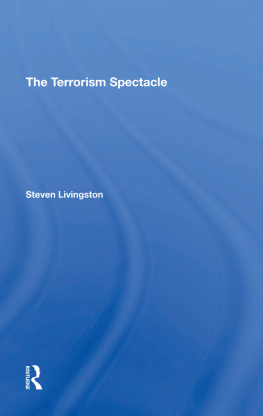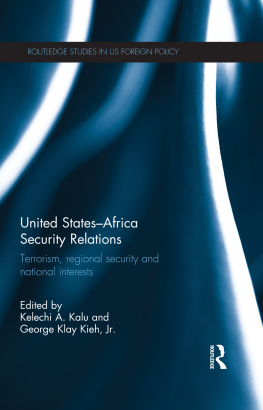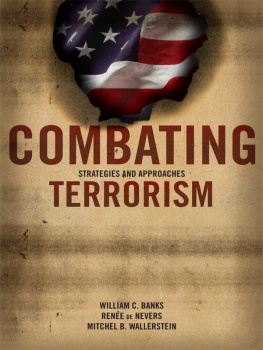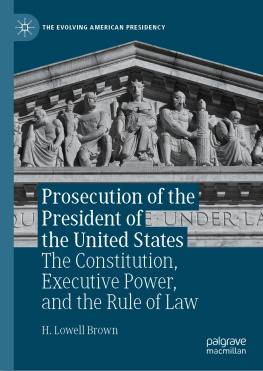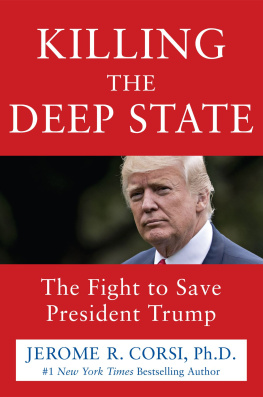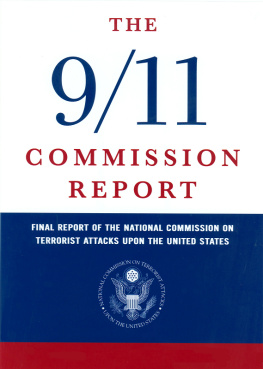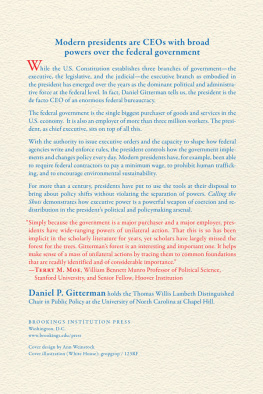National Strategy for Combating Terrorism
INTRODUCTION
"No group or nation should mistake America's intentions:
We will not rest until terrorist groups of global reach
have been found, have been stopped, and have been defeated."
PRESIDENT GEORGE W. BUSH
NOVEMBER 6, 2001
The terrorist attacks of September 11, 2001, in Washington, D.C., New York City, and Pennsylvania were acts of war against the United States of America and its allies, and against the very idea of civilized society. No cause justifies terrorism. The world must respond and fight this evil that is intent on threatening and destroying our basic freedoms and our way of life. Freedom and fear are at war.
The enemy is not one person. It is not a single political regime. Certainly it is not a religion. The enemy is terrorism--premeditated, politically motivated violence perpetrated against noncombatant targets by subnational groups or clandestine agents. Those who employ terrorism, regardless of their specific secular or religious objectives, strive to subvert the rule of law and effect change through violence and fear. These terrorists also share the misguided belief that killing, kidnapping, extorting, robbing, and wreaking havoc to terrorize people are legitimate forms of political action.
The struggle against international terrorism is different from any other war in our history. We will not triumph solely or even primarily through military might. We must fight terrorist networks, and all those who support their efforts to spread fear around the world, using every instrument of national power--diplomatic, economic, law enforcement, financial, information, intelligence, and military. Progress will come through the persistent accumulation of successes--some seen, some unseen. And we will always remain vigilant against new terrorist threats. Our goal will be reached when Americans and other civilized people around the world can lead their lives free of fear from terrorist attacks.
There will be no quick or easy end to this conflict. At the same time, the United States, will not allow itself to be held hostage by terrorists. Combating terrorism and securing the U.S. homeland from future attacks are our top priorities. But they will not be our only priorities. This strategy supports the National Security Strategy of the United States. As the National Security Strategy highlights, we live in an age with tremendous opportunities to foster a world consistent with interests and values embraced by the United States and freedom-loving people around the world. And we will seize these opportunities.
This combating terrorism strategy further elaborates on Section III of the the National Security Strategy by expounding on our need to destroy terrorist organizations, win the "war of ideas," and strengthen America's security at home and abroad. While the National Strategy for Homeland Security focuses on preventing terrorist attacks within the United States, the National Strategy for Combating Terrorism focuses on identifying and defusing threats before they reach our borders.
While we appreciate the nature of the difficult challenge before us, our strategy is based on the belief that sometimes the most difficult tasks are accomplished by the most direct means.
Ours is a strategy of direct and continuous action against terrorist groups, the cumulative effect of which will initially disrupt, over time degrade, and ultimately destroy the terrorist organizations. The more frequently and relentlessly we strike the terrorists across all fronts, using all the tools of statecraft, the more effective we will be.
The United States, with its unique ability to build partnerships and project power, will lead the fight against terrorist organizations of global reach. By striking constantly and ensuring that terrorists have no place to hide, we will compress their scope and reduce the capability of these organizations. By adapting old alliances and creating new partnerships, we will facilitate regional solutions that further isolate the spread of terrorism. Concurrently, as the scope of terrorism becomes more localized, unorganized and relegated to the criminal domain, we will rely upon and assist other states to eradicate terrorism at its root.
The United States will constantly strive to enlist the support of the international community in this fight against a common foe. If necessary, however, we will not hesitate to act alone, to exercise our right to self-defense, including acting preemptively against terrorists to prevent them from doing harm to our people and our country.
The war on terrorism is asymmetric in nature but the advantage belongs to us, not the terrorists. We will fight this campaign using our strengths against the enemy's weaknesses. We will use the power of our values to shape a free and more prosperous world. We will employ the legitimacy of our government and our cause to craft strong and agile partnerships. Our economic strength will help failing states and assist weak countries in ridding themselves of terrorism. Our technology will help identify and locate terrorist organizations, and our global reach will eliminate them where they hide. And as always, we will rely on the strength of the American people to remain resolute in the face of adversity.
We will never forget what we are ultimately fighting for--our fundamental democratic values and way of life. In leading the campaign against terrorism, we are forging new international relationships and redefining existing ones in terms suited to the transnational challenges of the 21st century.
We seek to integrate nations and peoples into the mutually beneficial democratic relationships that protect against the forces of disorder and violence. By harnessing the power of humanity to defeat terrorism in all its forms, we promote a freer, more prosperous, and more secure world and give hope to our children and generations to come. Ultimately, our fight against terrorism will help foster an international environment where our democratic interests are secure and the values of liberty are respected around the world.
THE NATURE OF THE TERRORIST THREAT TODAY
"We have seen their kind before. They are the heirs of all the
murderous ideologies of the 20th century. By sacrificing
human life to serve their radical visions--by abandoning
every value except the will to power--they follow
in the path of fascism, and Nazism, and totalitarianism.
And they will follow that path all the way, to where it ends:
in history's unmarked grave of discarded lies."
PRESIDENT GEORGE W. BUSH
ADDRESS TO A JOINT SESSION OF CONGRESS
AND THE AMERICAN PEOPLE
SEPTEMBER 20, 2001
Americans know that terrorism did not begin on September 11, 2001. Regrettably, its history is long and all too familiar. The first major terrorist attack on New York City's financial district, for instance, did not occur on September 11, or even with the 1993 truck bombing of the World Trade Center. It occurred September 16, 1920, when anarchists exploded a horse cart filled with dynamite near the intersections of Wall and Broad Streets, taking 40 lives and wounding about 300 others. Starting with the assassination of President William McKinley in 1901 and continuing with the bombings of the U.S. embassies in Tanzania and Kenya in 1998 and the USS Cole in Yemen in 2000, American history in the 20th century was punctuated by terrorism.



